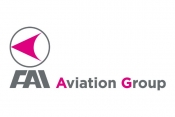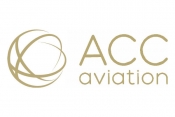Insight from ACC Aviation - ‘The long road to recovery’
Monday 15th February 2021
Not so long ago if an airline CEO was asked what keeps them awake at night, their reply would have been predictable - too little (or too much) hedging of fuel purchases; the threat of industrial action; or losing market share on a lucrative air route.
Then along came coronavirus, causing the worst crisis aviation has ever known. Now the big issues for almost all airlines are viability, concern for staff, and developing a survival strategy in the most uncertain climate ever.
There is no clear path to the recovery of global travel markets because this pandemic and the dystopian world it has taken us into is unlike any other downturn. The return to stability – if that’s possible - depends on how quickly and how widely vaccines can be administered, how long it takes governments to ease social restrictions and reopen national and international borders, and how nimble and innovative airlines can be in rebuilding their operations.
A key cause of the airlines’ crisis is overcapacity. There are simply too many aircraft for current and medium-term demand, and in many cases there were also too many before Covid struck.
Globally, as their networks and flight frequencies have shrunken to a fraction of pre-Covid scale, airlines have dramatically downsized, with more than 60% of aircraft currently grounded, and future fleets resized through means including:
- Early retirement of aircraft, primarily older, larger, and less efficient models, including the Airbus A380 and Boeing 747.
- Deferral and restructuring of aircraft lease rental obligations or early return of leased aircraft. Cancellation or reduction of new aircraft orders, and/or deferral of deliveries, and
- Placing excess aircraft into long term storage.
The sharp decline in global passenger demand has caused airlines to burn through cash at an alarming rate, while also scrambling to cut costs and raise capital to survive.
Those with strong market positions and high credit quality are well-placed to raise funds through government support, secured lending and other means.
But others, typically smaller airlines and those already financially challenged, have not enjoyed the same level of funding access and are struggling to meet their obligations.
Airlines are scrambling to change their direction (or operating model) flexibly, ready for when borders and countries open again.
At ACC Aviation we have identified six key trends that will be prominent in 2021.
Rise of the narrow bodies
Deployment of narrowbody aircraft on long haul routes was an emerging trend well before the pandemic. Airlines including United, JetBlue, Aer Lingus, TAP Air Portugal, AirAsia X and Australia’s Jetstar all began planning narrowbody operations on long, thin routes, hitherto unviable on wide-bodied jets.
JetBlue, for example, plans to start serving London from New York and Boston in 2021 using Airbus A321LRs. The return to service of the Boeing 737MAX will likely see it, too, deployed on longer, thinner sectors. Significantly, Airbus has lost none for its new A321XLRs since March 2020.
Fleet Rightsizing
A shift to smaller-capacity, more versatile aircraft to match weaker demand. To survive, many airlines are reducing their fleets and networks, as we’ve seen with Virgin Australia adopting a smaller B737 fleet, axing widebody B777s and A330s, and ATR72 turboprops.
Industry trendsetter David Neeleman has chosen the Airbus A220 for his newest airline, Breeze, recognising that thousands of direct air services will be superceded by hub connections. Australia’s Alliance Airlines is acquiring at least 30 used Embraer E-190s at bargain prices.
Regionalisation
Companies seeking to protect their supply chains from external shocks will focus on bringing their businesses closer by air, generating new traffic flows. The preference for shorter-haul flights and decentralisation of offices and so-called ‘Zoom cities’ will require more diverse air networks, throwing up opportunities for regional operators. We also foresee revised interest in corporate shuttles, from eight seats up to 160-seat regional airliners, as direct, scheduled routes are cut.
The Environment
The focus on sustainable aviation is fast gathering momentum. Our industry has a chance (heavily financially incentivised to do so too) to be a better version of itself with carbon offset pledges and the drive to alternative fuels.
Increasingly, airlines are committing to zero net emissions by 2050. Boeing declared it is pushing for 100% sustainable aviation fuel compatible aircraft by 2030. Carriers such as KLM have stamped themselves as industry leaders in pursuing the development and use of affordable SAFs. Gulf carrier Etihad has teamed with Boeing in the Etihad Greenliner sustainability research programme; and Air New Zealand has flagged not just a commitment to SAF’s, but also collaboration with manufacturers on the development of future electric, hybrid and hydrogen propulsion.
Sale and leasebacks
Airlines are tackling liquidity issues by leveraging unencumbered assets to raise capital to help them through the downturn. Sale and leaseback, a specialist activity at ACC Aviation, has gained traction among airlines that own assets and are looking to raise additional capital.
The airline sells selected assets such as aircraft, engines, spares, tooling or other tangible items to a leasing company, then leases them back. This enables airlines to continue using assets while unlocking cash for other purposes.
Private jet charter
COVID-19 has led to a big increase in new private jet customers. Business aircraft have operated 268,000 sectors globally so far in 2021 according to WINGX, just 6% off comparable flight activity in January 2020.
This resilient sector has the potential to significantly increase demand as international borders open and business travel returns, while also forming partnerships with legacy airlines as many trim back their own premium cabins.
Author -- Phil Mathews, CEO, ACC Aviation.
ACC Aviation, founded in 2002 as an aircraft leasing specialist, is a provider of bespoke aviation solutions. Headquartered in Reigate, Surrey, UK, with global offices in the Middle East, Africa, North America and Asia, it delivers market-leading solutions across leasing, air charter and aviation asset management, together with strategic consultancy services to airlines worldwide. Phil Mathews joined the company in 2018 as CEO, bringing three decades of comprehensive and diverse experience in aviation and international air charter, having held Board positions at Air Partner and Chapman Freeborn in the UK and USA. ACC Aviation’s annual autumn UK Airline Conference has become a cornerstone of the aviation events calendar, attended by the world’s leading airlines and selected aviation professionals.
Latest News

Wednesday 18th December 2024
FAI named ‘Most innovative Air Ambulance Service’ at the Middle East Aviation Business Awards 2024









Get Social
Twitter Linked in Facebook Instagram